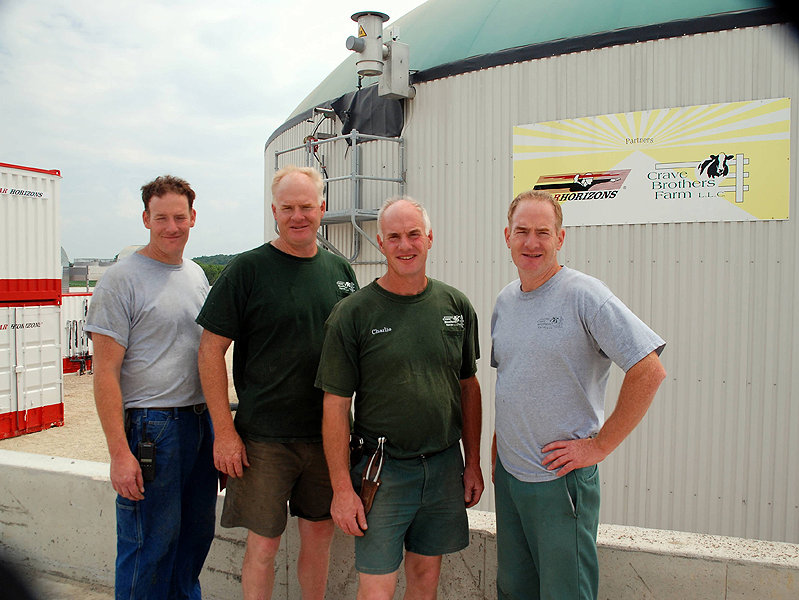If things look a little greener around here this April, there's a good reason. Our editorial staff is busy expanding the ideals of Earth Day into a month-long celebration of energy conservation, alternative transportation, recycling tips and about a million ways you can be a better friend to the planet. Welcome to Green Month, Milwaukee.
Milwaukee's Urban Ecology Center was a-buzz with green activity this past month in honor of Earth Day, but it certainly doesn't need an internationally recognized holiday to celebrate the wonder of nature.
A forerunner in green movement, the Urban Ecology Center has been a neighborhood-based, environmental education, non-profit community center at Riverside Park for nearly two decades.
The headquarters, which houses the resource center, offices and classrooms with live animal exhibits, is a 20,000-sq. ft. green construction facility that has won national awards for its use of recycled or renewable materials. The adjacent 75-ft. observation tower not only allows for stunning views of the forest and surrounding East Side neighborhood, it's also an astronomy club's telescope observatory, a frame for a 40-ft. climbing wall and home to a smart weather station.
The Urban Ecology Center has seen tremendous growth since the initial grassroots efforts of environmental scientist Dr. Else Ankel and a handful of volunteers in 1991. But what most people don't know is that the organization began as a means of crime reduction, not as an environmental combatant.
The center's Executive Director Ken Leinbach explains.
"It's an urban revitalization using environmental education as the tool. (Riverside) was a high crime park in the middle of the city, so the neighbors set out to save it from crime. The tool to do that was to bring kids into the park on a regular basis, so environmental education became the tool to reducing crime. If you bring screaming kids into a park every day, the drug trade dissipates."
In 1999, Leinbach helped create the Neighborhood Environmental Education Project (NEEP), a program that partners with schools within a two-mile radius. Students visit multiple times a year to tap maple trees for syrup, bake cookies in a solar oven, wade through the river and explore "outdoor laboratories." It's this program's success that has made the Urban Ecology Center what it is today, says Lienbach.
The project is based on a body of research regarding what makes somebody environmentally aware. Why does one person consider the environment and another person not?
"It turns our there are indicators, and information alone doesn't generally change someone; it's not until it gets in your heart that do you do something about it," he says. "If you've grown up with consistent contact with natural land from an early age, that is a huge piece. And if that's coupled with having a mentor in your life that demonstrates positive behavior toward that land, then you've got it. Those two things you're almost for sure going to develop an environmental ethic."
The NEEP program is nationally, even globally, recognized and Lienbach says similar models are popping up in places such as Cleveland.
"We get calls, frequently, from urban areas asking us for advice. Locally, we've expanded to a satellite center in Washington Park and the reason we were asked to come there was because it was a park with some crime issues. We have hopes of starting a south side satellite park in the Menomonee Valley in 2011."
The center's Eco-Buck system is also gaining popularity amongst employers. Anyone who does not use fossil fuels to get to work has a dollar added to their paycheck that day. On any given day, Lienbach says, 90 to 100 percent of his 30-member staff bikes, walks or takes the bus to work. The center also has a community car that the employees share for professional and personal use.
The Urban Ecology Center operates around this mindset, what Leinbach calls an "environmental filter." Now, as a thriving community of students, volunteers, scientists, teachers and artists, it stands an ever-important resource for the city of Milwaukee.
"I just love my job," says Leinbach. "In my position, with creating this place and growing it, I've been able to interact with the mover and shakers, top business people, top politicians as well as people in the community. I enjoy the diversity of relationships. I feel like I'm an agent of change, and I like that. I feel like we've actually done something, and the ripple effect is so exciting to watch."
OnMilwaukee.com staff writer Julie Lawrence grew up in Wauwatosa and has lived her whole life in the Milwaukee area.
As any “word nerd” can attest, you never know when inspiration will strike, so from a very early age Julie has rarely been seen sans pen and little notebook. At the University of Wisconsin-Milwaukee it seemed only natural that she major in journalism. When OnMilwaukee.com offered her an avenue to combine her writing and the city she knows and loves in late 2004, she knew it was meant to be. Around the office, she answers to a plethora of nicknames, including “Lar,” (short for “Larry,” which is short for “Lawrence”) as well as the mysteriously-sourced “Bill Murray.”







